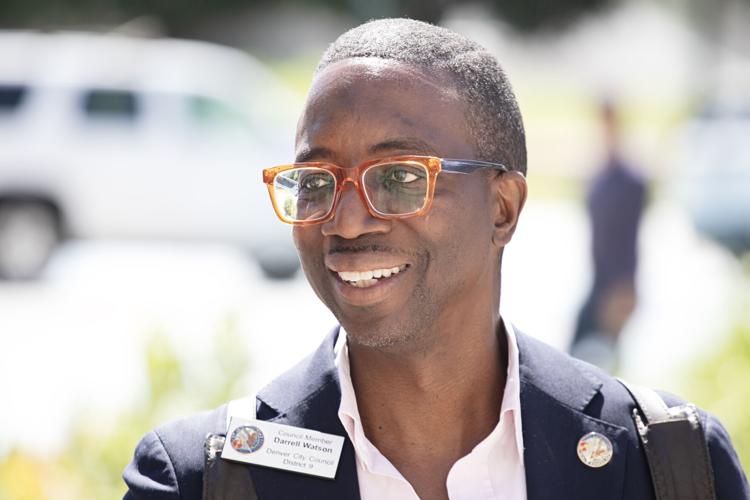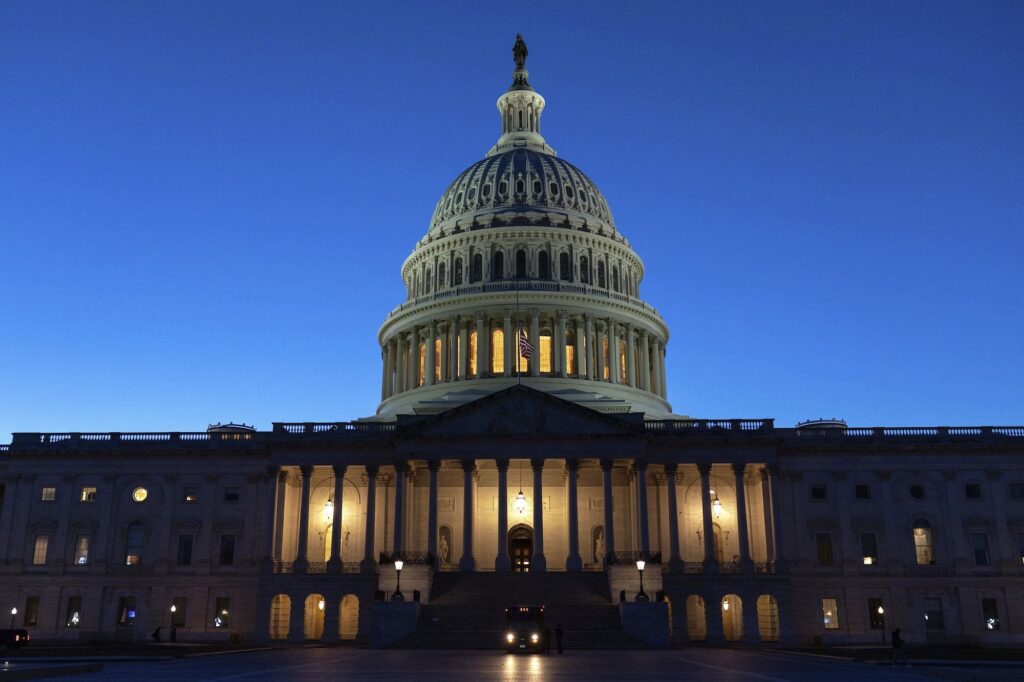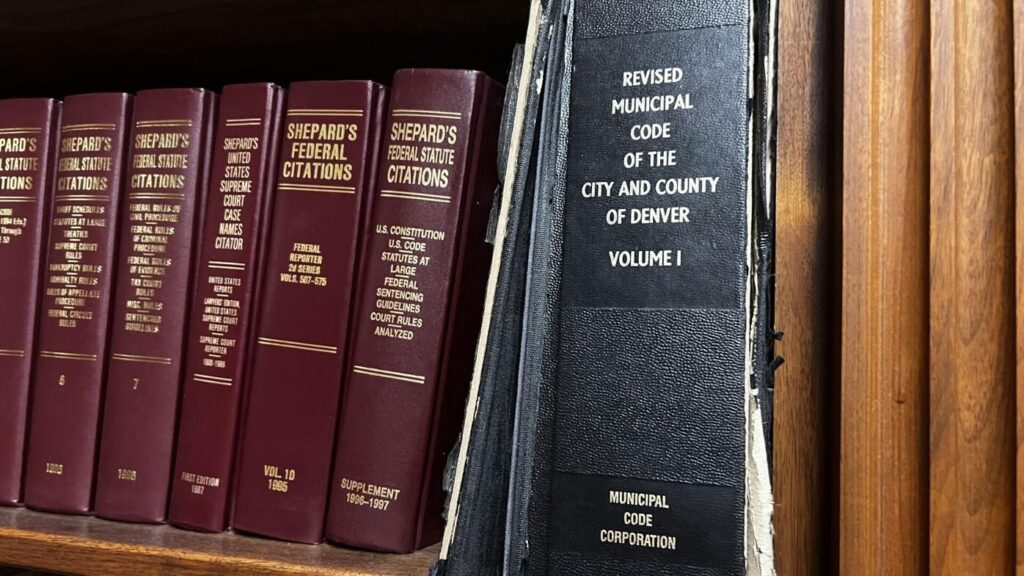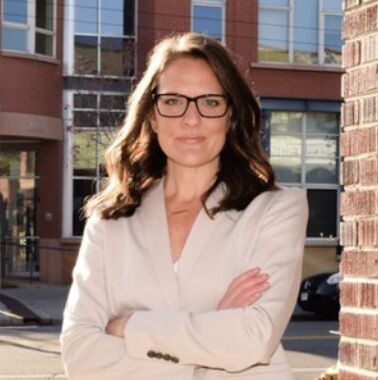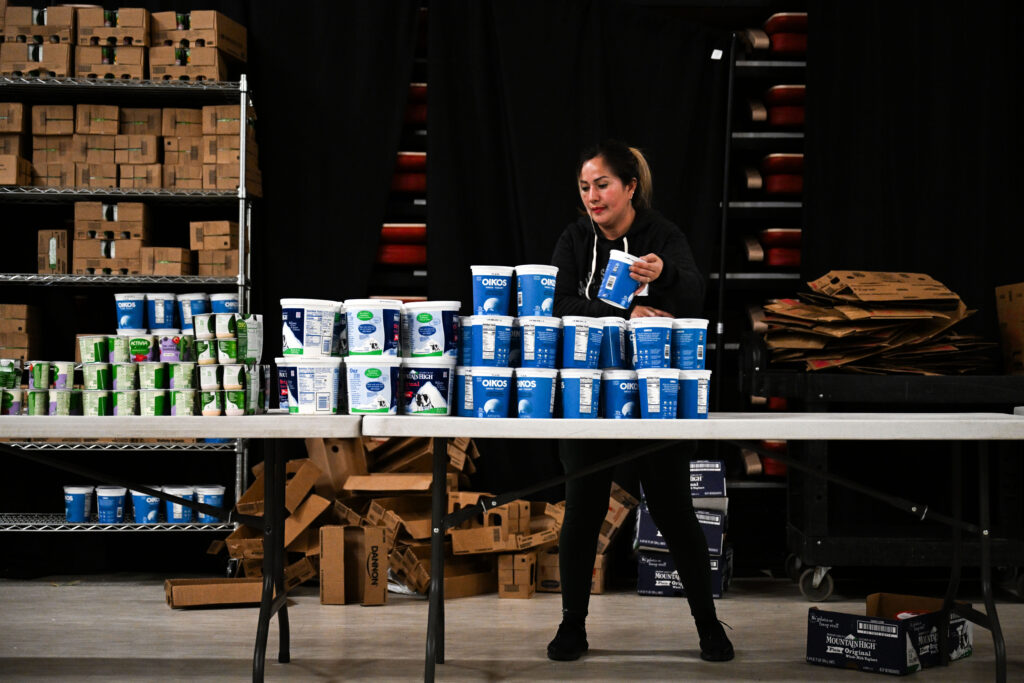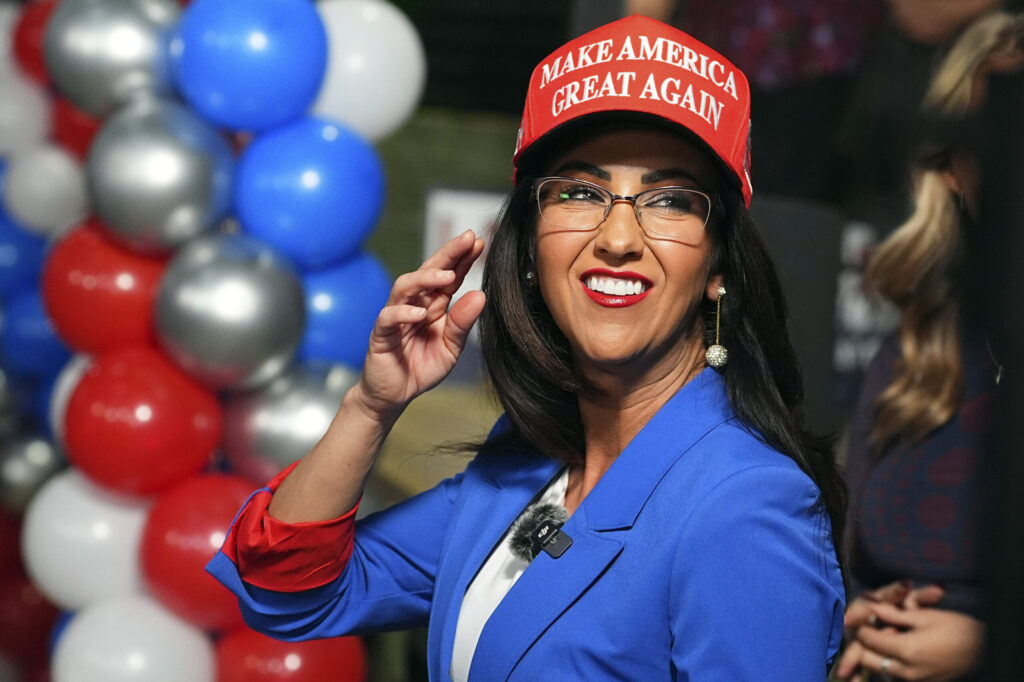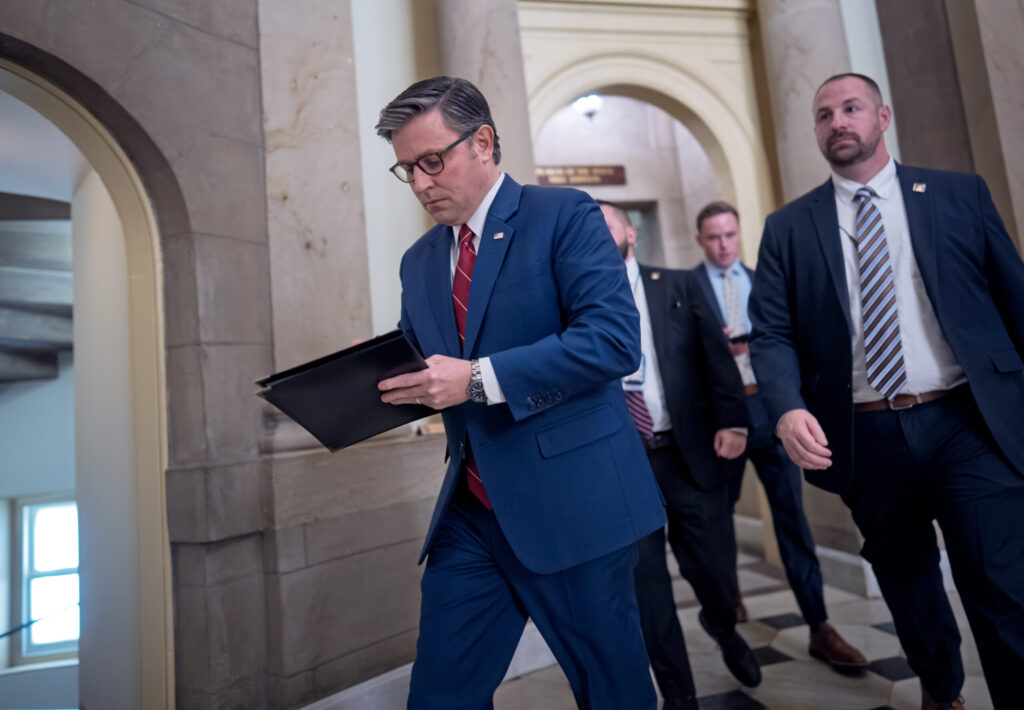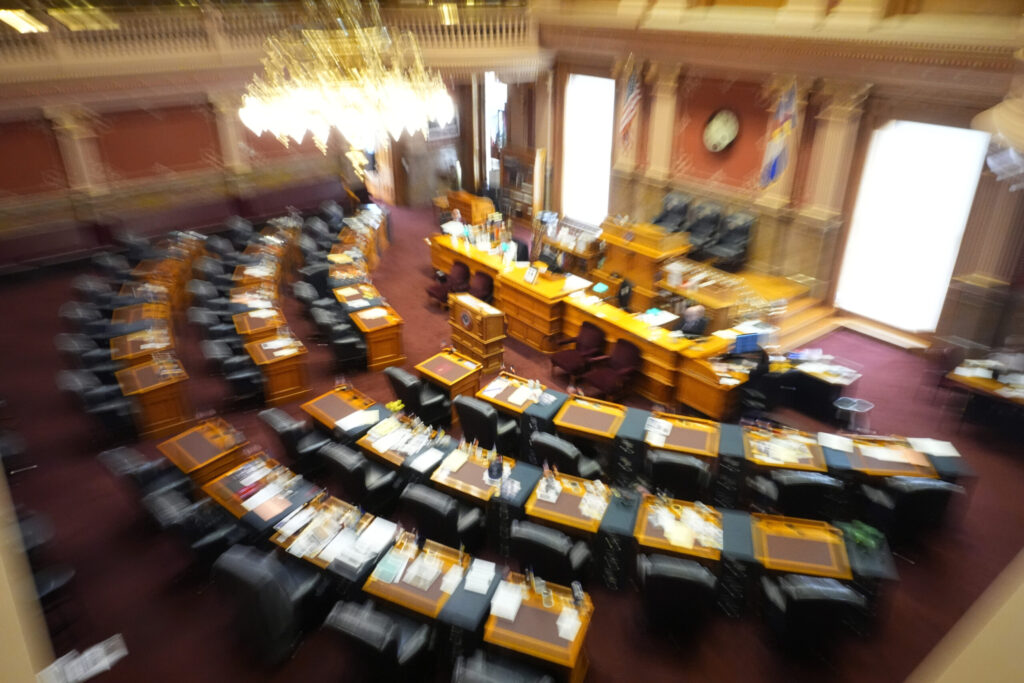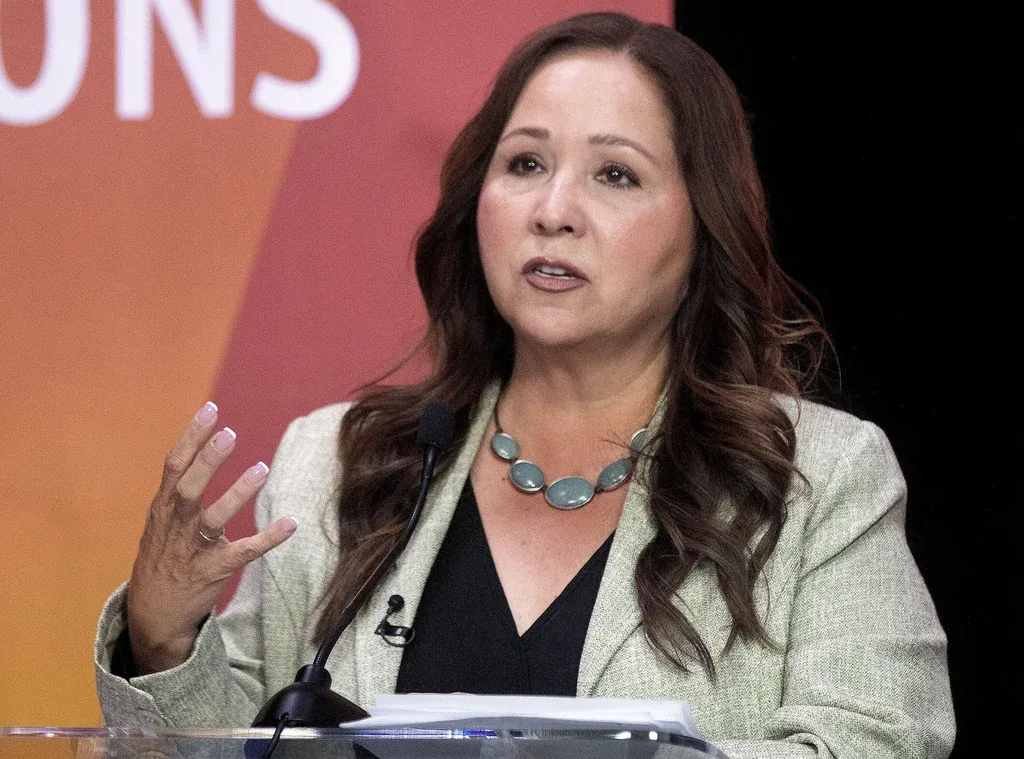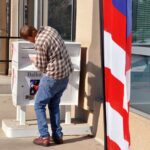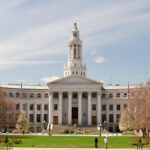Denver City Council appears to support $100M sales tax increase
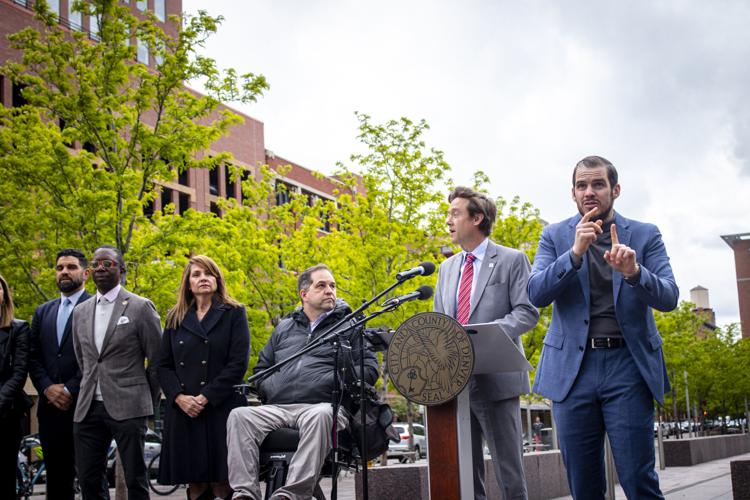
FILE PHOTO: Mayor Mike Johnston (at podium) stands (from left to right) next to city Councilmembers Darrell Watson, Amanda Sandoval and Chris Hinds at a press conference Thursday May 9, 2024. Johnston's new sales tax proposal caused some hesitation from councilmember Chris Hinds, but his concerns have since been mostly addressed. (Bernadette Berdychowski/The Denver Gazette)
Bernadette Berdychowski / Denver Gazette
A proposal to increase sales taxes to generate $100 million, which sponsors want to allocate for “affordable” housing, appears to have broad support within the City Council, though at least one member has expressed reservations about asking residents to pay more for goods.
A City Council committee on Wednesday advanced the proposal, which will ask voters to approve the tax hike in November, to Denver’s full elected body.
The council has scheduled a hearing on the tax increase on Monday, when it expects to hear feedback from the public.
If approved at the ballot box, the proposal would raise Denver’s tax rate raised by 0.5 points. The City Council earlier approved another sales tax hike question to generate about $70 million. If voters said yes to both measures, the city’s sales tax rate would become the highest in all of metro Denver and northern Colorado, nearly rivaling the state’s resort towns.
City estimates said the 0.5-point tax hike would generate up to $100 million annually to pay for building affordable housing over the next decade.
District 9 Councilmember Darrell Watson said the tax increase will help people who make between 60% and 125% of the area median income.
“This ballot initiative levels the playing field and provides flexibility for us to providing funding across the entire housing need spectrum,” he said. “There’s also a needs assessment every two years, which I think is essential for the city council to hold accountable the administration on how those funds are spent.”
Housing for those between 60% and 125% AMI can be thought of as “missing middle housing,” he said.
Teachers, nurses, firefighters and food service workers may make enough money to be outside of the 60% or below AMI bracket, but not enough to afford living in Denver comfortably, Watson said.
The U.S. Department of Housing and Urban Development (HUD) considers “affordable housing” as housing — including utilities — that costs no more than 30% of one’s gross pay. An employee working Denver’s minimum wage of $18.81 per hour, full time, would make just over $3,000 per month. Ideally, according to HUD, the housing costs, including utilities, would be just over $900 per month.
The median rent in Denver is currently more than twice that for a two-bedroom rental unit, which costs just under $2,000 per month, according to ApartmentList’s August update.
City officials claim the sales tax increase will cost Denver residents roughly $2 per week, and should not adversely affect them financially. Others on the council worry about “reflexively” turning to sales taxes to fund programs.
Denver’s elected officials are considering the tax hike even as more than a third of Denver voters say taxes are “way too high.” A recent poll from the Colorado Polling Institute said 29% regard taxes as “high but acceptable,” while about the same number — 27% — view taxes as “about right.”
The city is looking for new sources of revenue amid tens of millions of dollars in spending on illegal immigration and homelessness. To date, more than 42,000 immigrants — mostly from South and Central America, specifically Venezuela — have arrived in Denver since December 2022. Early in the crisis, Denver officials decided that city taxpayers would assume the cost of temporarily sheltering the immigrants, as well as tickets to their final destination.
Meanwhile, Johnston’s administration is on track to spend $155 million between July 2023 and December 2024 — $65 million more than the mayor previously said it would cost.
In pushing for the tax hike, Mayor Mike Johnston said existing revenue streams may pay for 20,000 units of affordable housing, but that new revenue from the tax increase will help pay for an additional 20,000.
Two weeks ago, District 10 Councilmember Chris Hinds earlier said he had “numerous concerns about the measure.” Since then, many of his concerns have been or are being addressed, he said.
“These funds are collected from everyone in Denver, and these funds should be spent for the benefit of everyone in Denver, including people with disabilities,” he said. “I’m working with the sponsors on language that would address my concern, and I’m optimistic that my concern will be addressed very soon.”
Hinds’ district includes much of downtown. He said he has heard from many who are worried about the impact of the proposed sales tax rate increase. Some, he said, fear customers may leave Denver to shop in the suburbs.
He’s heard those concerns before, he said, adding he believes the public should decide the issue.
“I’ve voted to refer at least four other tax increases to the ballot for consideration… and voters have approved each of them,” he said. “It is important for me to recognize that my constituents are generally inside the traditional inverted L — as in my constituents are generally more affluent than citywide averages.”
When the council approved the other proposed tax hike — a 0.34-point rate increase meant to benefit Denver Health — only Councilmember Kevin Flynn balked at the measure.
At the time, Flynn called sales tax increases the most “regressive” form of increasing citywide revenue, arguing it would affect lower-income residents especially hard.
“My vote tonight is one of protest, but I am not going to campaign against the sales tax increase,” Flynn earlier said. “I just wanted to go on the record as saying that we should have a more comprehensive solution than turning to our sales tax.”






